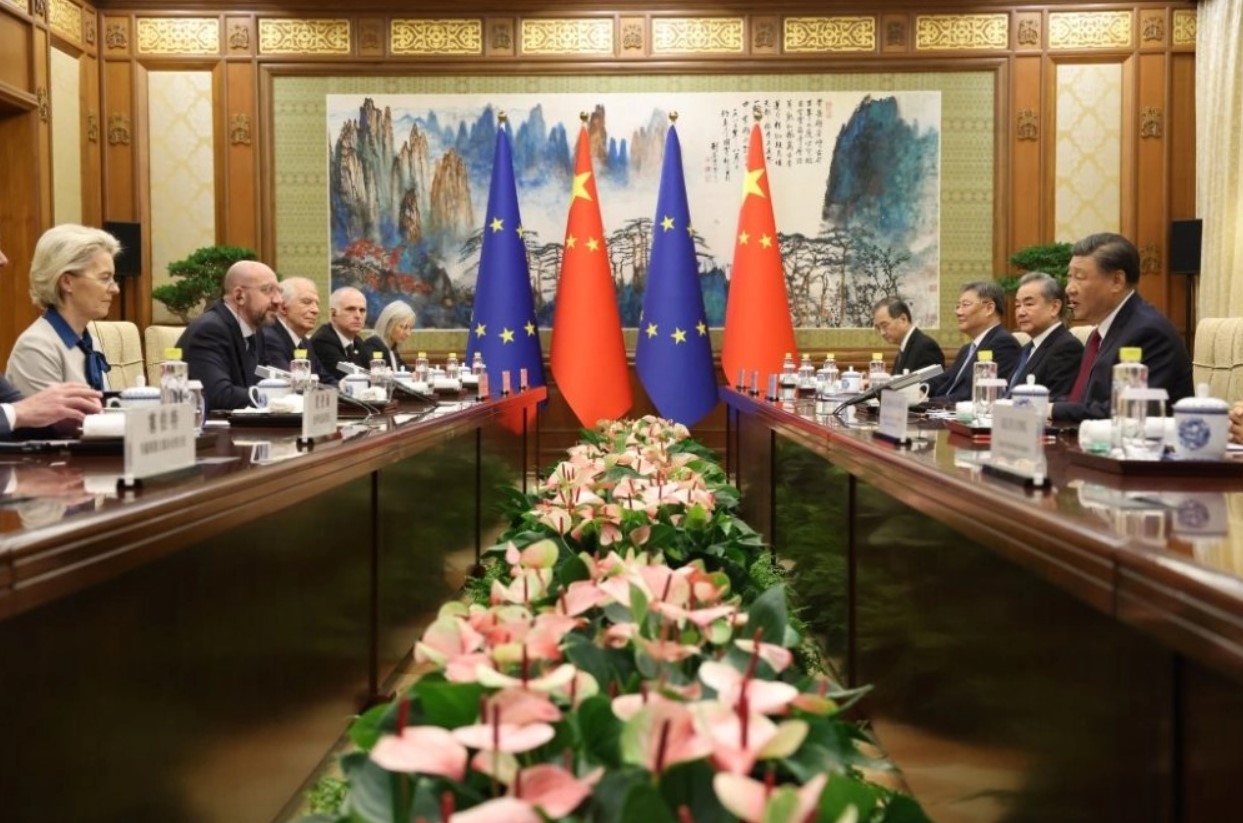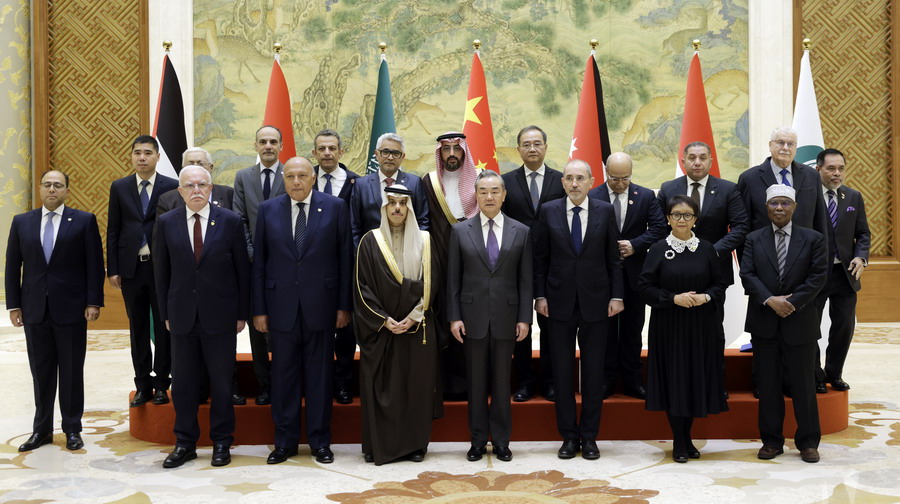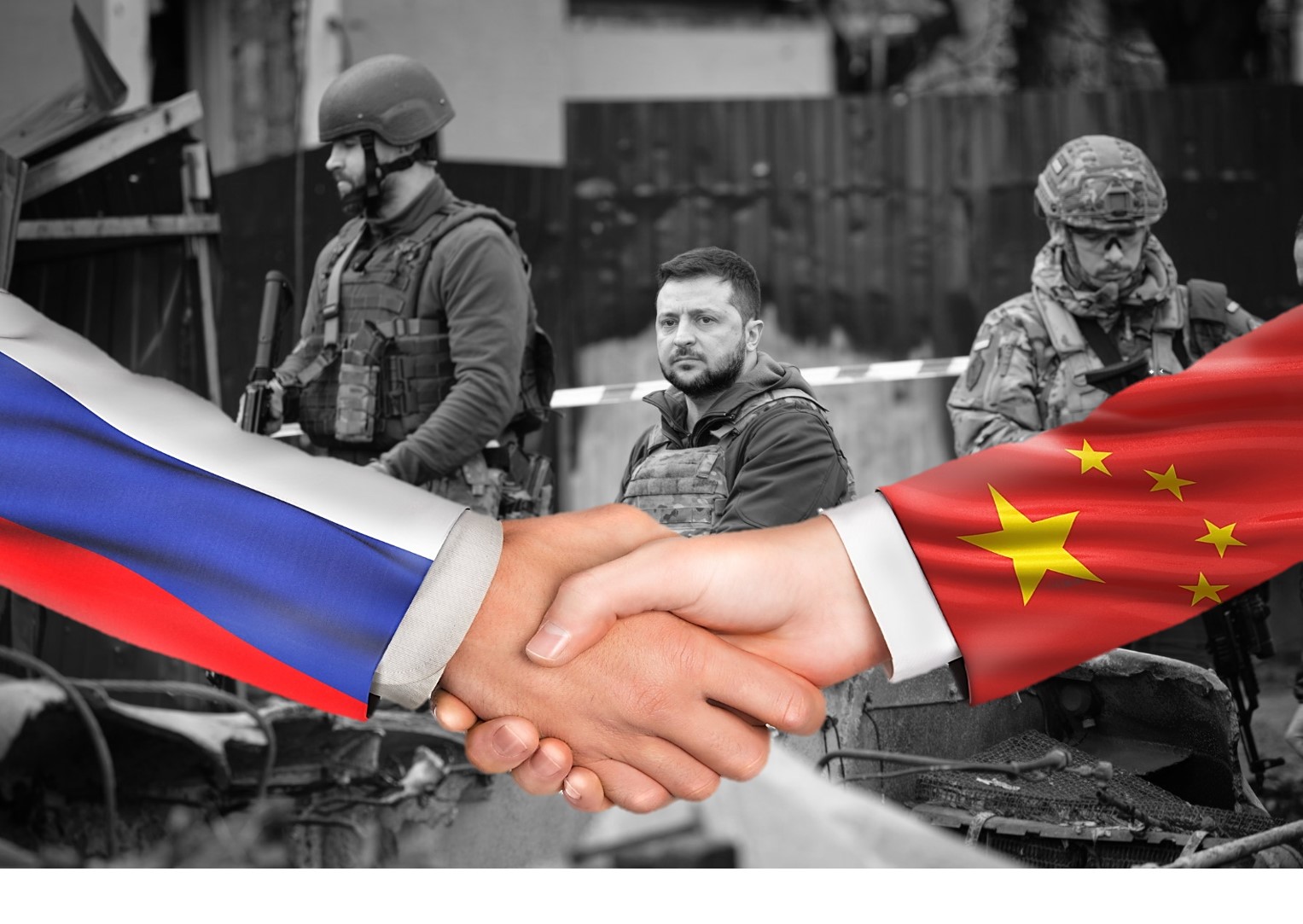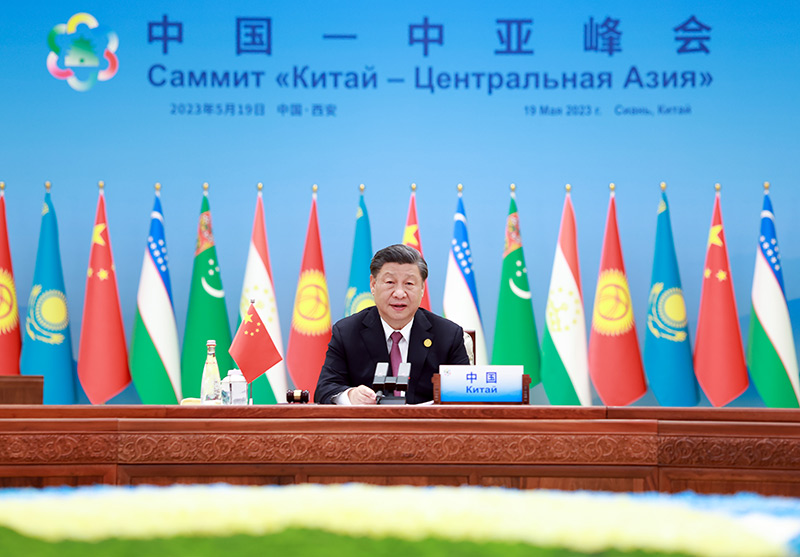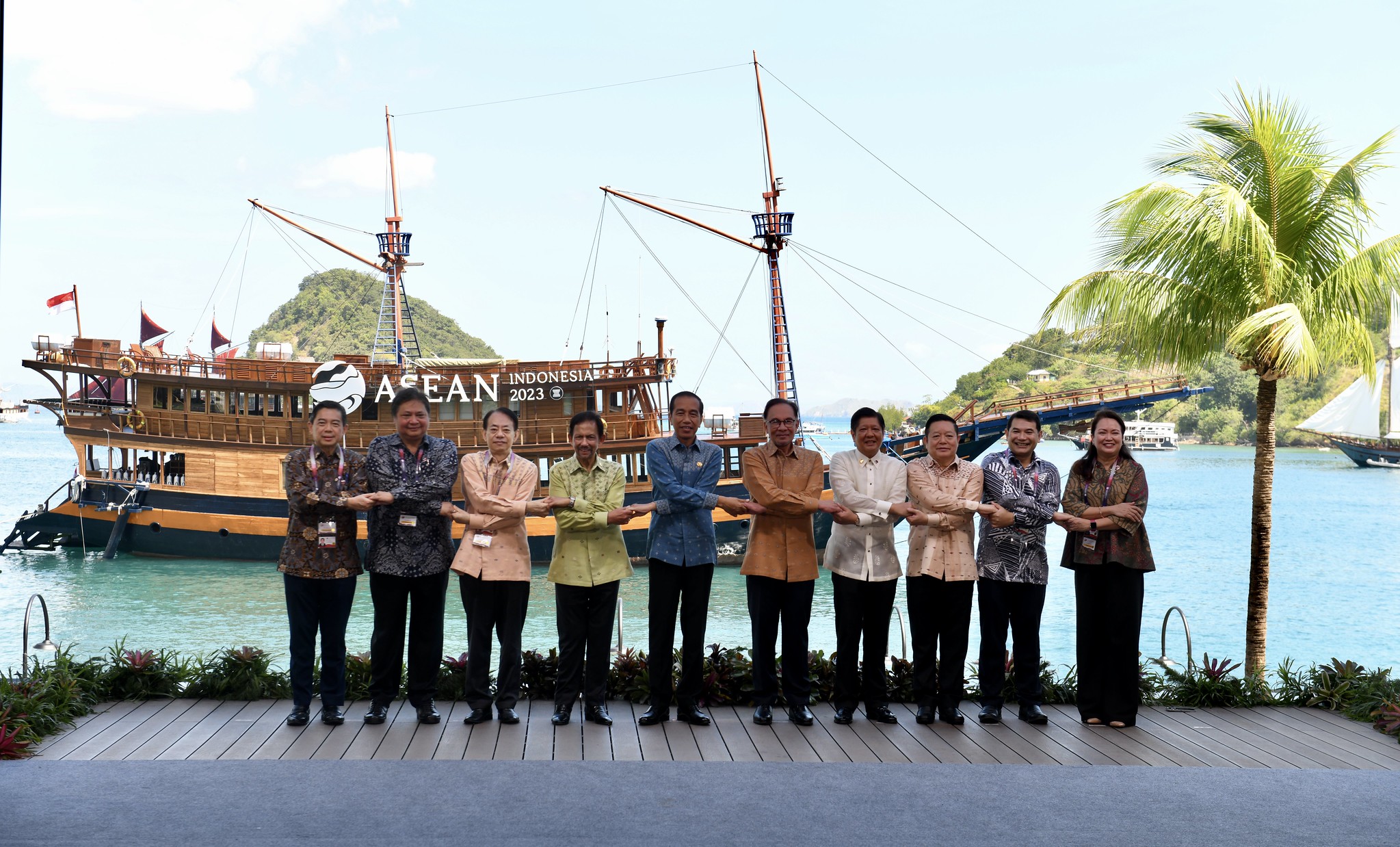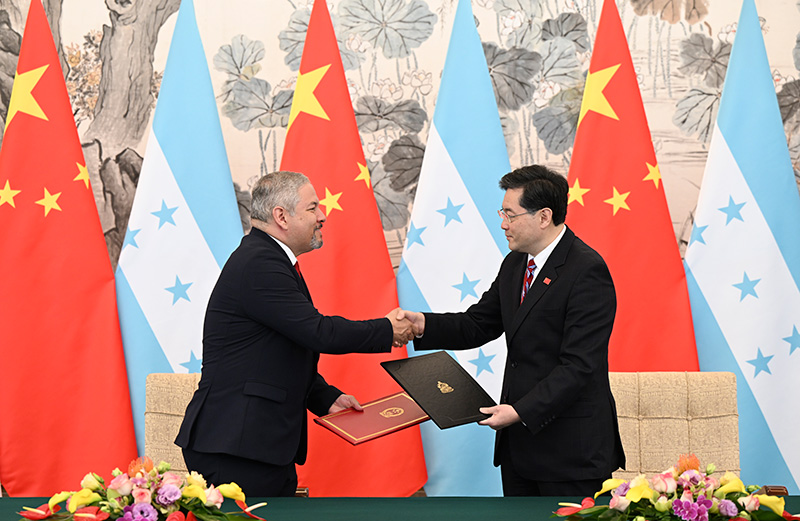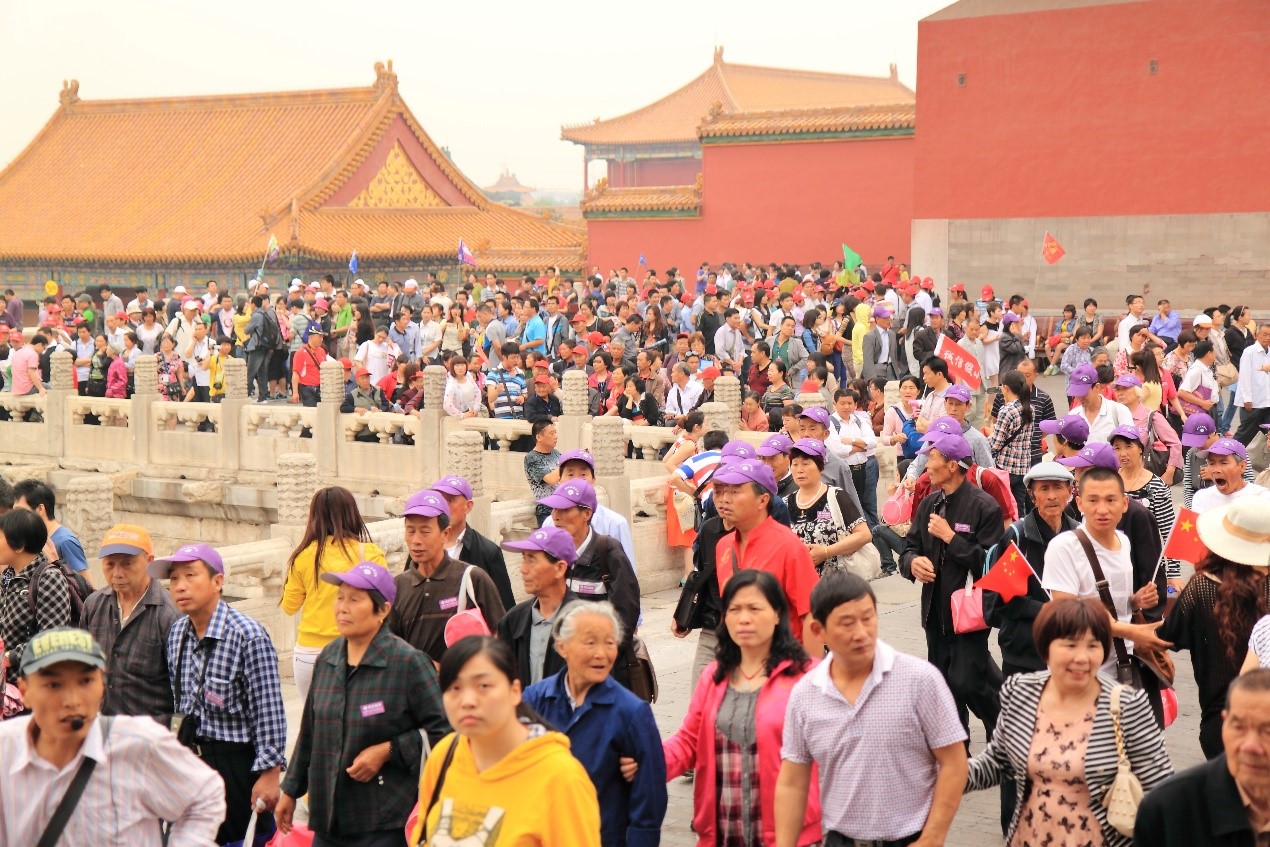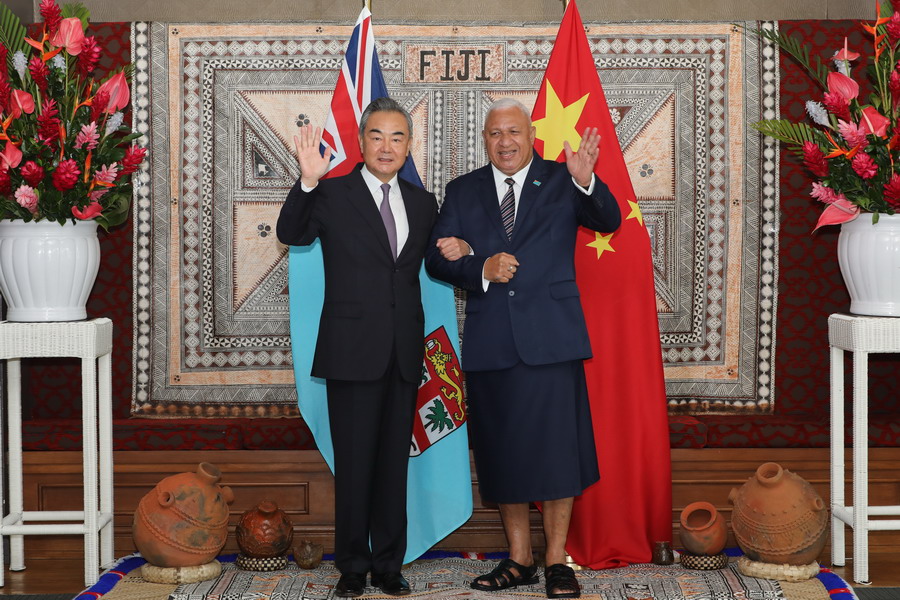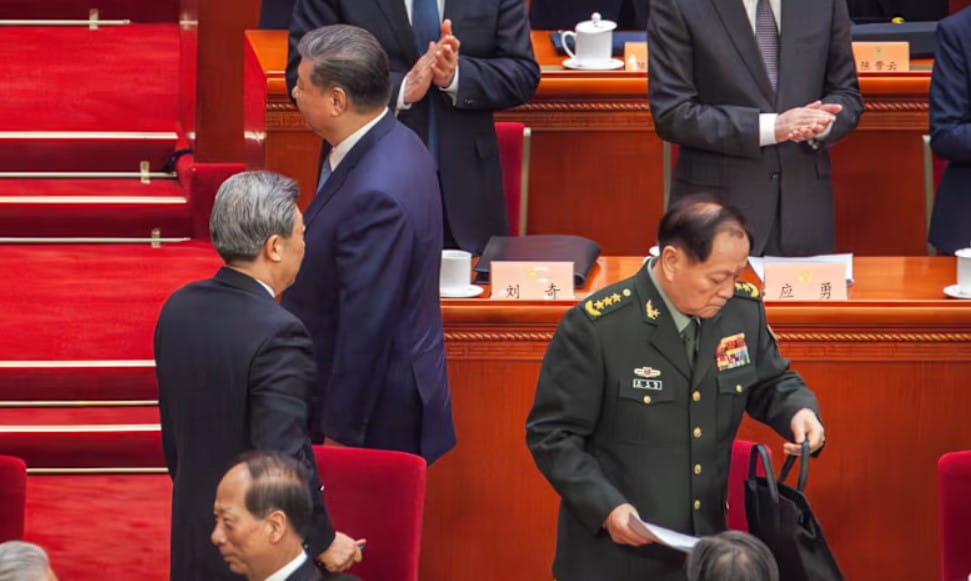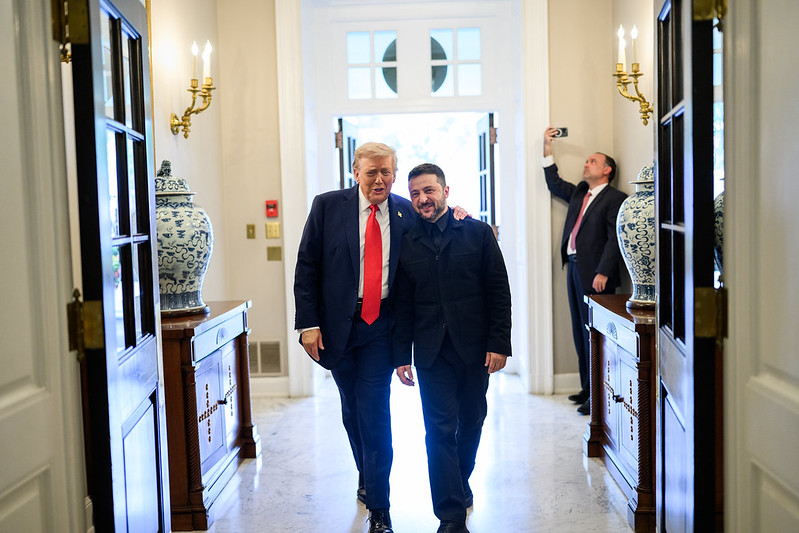Javier Milei’s election as Argentina’s president with 55.4% of total votes in November, drew much of global attention about the future of his government’s relations with the People’s Republic of China. Milei has used strong ideological language in speeches about his foreign policy, such as the fact that he is against some “communist governments” around the world. Photo source: Javier Milei, December 12, 2023, FB, https://www.facebook.com/photo.php?fbid=898304671666359&set=pb.100044605021768.-2207520000&type=3.
Prospects & Perspectives No. 71
Argentina’s New President and the China Threat Narrative
By Carlos Eduardo Piña
Javier Milei’s election as Argentina’s president with 55.4% of total votes in November, drew much of global attention about the future of his government’s relations with the People’s Republic of China (PRC). There are many reasons for this interest, but most stem from his unpredictable attitudes about his economic and political plans. Publicly, Milei has used strong ideological language in speeches about his foreign policy, such as the fact that he is against some “communist governments” around the world. Among these countries, Milei mentioned the PRC; during a TV interview, he said “we do not make agreements with communists.”
Milei’s victory came after a catastrophic economic and social situation in Argentina, with a 140% year-on-year inflation rate in 2023, a notable increase in the poverty rate (42% of the country according to the World Bank) and currency exchange controls which have generated a foreign exchange black market. During his campaign, Milei blamed the situation on the leftist economic program created by outgoing President Alberto Fernández. This context explains why Milei’s presidential campaign focused on leftist governments and its allies, including the PRC.
Beyond the campaign speeches, there will certainly be a huge difference between Milei the presidential candidate and Milei the new Argentinian President. Given the current economic situation in Argentina, it is unlikely that Milei will be able to follow through with his bold foreign policy ideas, because the PRC presents some of the most realistic opportunity for the country to solve (or manage) the issues the country faces. In other words, despite Milei’s use of the “China threat” as rhetoric during his campaign, the PRC is likely to remain a strategic partner to Argentina in the next four years, as much as it has been in the past few years.
The strategic importance of the PRC for Argentina: too big to be ignored
Sino-Argentinian relations in the 21st century coincided with the export capital policy the PRC adopted in its engagement with the Latin American and Caribbean (LAC) region at the beginning of this century. This strategy has focused on increasing trade relations, financing (loans), and infrastructure projects. With Argentina, this scheme was complimented with a new political framework signed in 2014 that lifted the bilateral relationship to a Comprehensive Strategic Partnership.
The PRC’s substantial economic links with Argentina are undeniable, a situation that makes it impossible for any Argentinian administration to ignore this Asian power. In this century, according to Inter-American Dialogue, the China Development Bank has lent a total of US$17 billion to Argentina, and other commercial banks have also provided 36 different loans for various infrastructure projects. Many of these loans are for critical infrastructure projects, such as ports, railways, energy plants (solar, hydroelectric, nuclear and wind) and oil and gas. Moreover, China has been operating a space station in Neuquén Province, located in the south of Argentina (this station is managed by a division of the People’s Liberation Army).
On the commercial front, China is now Argentina’s second-largest trading partner, behind Brazil, but ahead of the U.S. According to data from UN-Comtrade, the main Chinese imports from Argentina include soya beans, at US$2.8 billion in 2022, about 93% of total Argentinean soya bean exports. The PRC is also a key buyer of meat and cereal products from Argentina. For its part, Argentina imports a lot of manufacturing products from China. In general, despite a trade balance favorable to the PRC, China remains a key market for Argentina.
Finally, it is important to draw attention to the direct financial support and currency interventions by China in Argentina over the past decade, which played a role in maintaining Argentinian public accounts. For example, in 2009, 2014, 2015, 2017 and, 2023, the two countries agreed (and renewed) the use of swap instruments to stabilize the Argentinian peso rate exchange. These mechanisms were used in the past by Argentinian governments for important economic measures. For example, in 2015 it allowed Mauricio Macri’s government to lift currency exchange controls, but also made it possible for the Alberto Fernandez government to avoid a default with the IMF, as the Chinese schemes facilitated debt payments.
What can we expect from the future Sino Argentinian relationship?
Immediately after Milei’s victory, Chinese leader Xi Jinping sent a public letter congratulating him and expressed his hopes to build upon existing cooperation agreements between the two countries. Surprisingly, the president-elect sent a warm reply to the PRC leader, thanking him for the letter and extending his best wishes to the Chinese people.
However, a little more than a week after this diplomatic exchange, the new Argentinian Minister of Foreign Affairs, Diana Mondino, publicly declared that Argentina “will not to be part of BRICS,” the organization comprising Brazil, Russia, India, the PRC, and South Africa. In August, Argentina was accepted as a new member of the intergovernmental organization, where China is one of the most important and influential sponsors. Mondino said that Argentina was planning to apply to join the Organization for Economic Cooperation and Development (OECD), a club led by the major capitalists global economies.
These developments give us an early indication of how the bilateral relationship could look like between Argentina and the PRC. The decision to not join BRICS shows a clear intention from the new Argentinian government to keep a certain distance — at least ideologically — from the PRC. This does not mean that both countries will not work together in other areas, such as in the financial and commercial spheres, but it showcases the Milei government’s balanced approach to relations with China.
This was not the first use of anti-communist rhetoric in the region. But other right-leaning politicians have not been able to truly follow through after getting elected. For example, Brazil under Jair Bolsonaro, a politician who during his 2018 presidential campaign was highly critical of the PRC, had to adopt a more pragmatic approach due to the strong economic linkages between Brazil and the PRC. In this case, the bilateral relationship was managed instead by his Vice-President, Hamilton Mourão.
The Macri government (2015 to 2019) is another example of this. During his campaign, Macri stressed the importance of reviewing some projects financed by China in Argentina. However, after taking office, China became one of his most important allies as he sought to manage the country’s financial challenges, and so he agreed to the construction of several new infrastructure projects with funding by the PRC.
For the Milei government, it is likely that China will continued to serve as an important source of financing to sustain public projects that the new government may otherwise not be able to sustain. Also, the economic program announced by Milei mentioned privatizing some state-owned companies, like Argentinian Airlines and the oil firm YPF. It is likely that China will be interested in some acquisitions and seek to increase its role in the Argentinian economy.
Two other variables could affect Sino-Argentinian relations in the next four years. First is the proximity/affinity between Milei and former American president Donald Trump, who will likely run in next year’s presidential election. If Trump maintains his critical views on the PRC government, this is likely to influence Milei, who could seek to emulate the American leader. Second are concerns over economic development in Argentina, which will determine the kind of foreign support Milei needs, and what might be available from the PRC.
From the Chinese perspective, Beijing always seeks to work with Argentine authorities no matter who is in power. Its interest in Argentina include sustaining its “one China” principle (not to be confused with a country’s “one China” policy) regarding Taiwan and maintaining a presence in the strategically located Argentina, including the continued operation of the space station in the southern part of the country.
To conclude, Argentina is one of many examples of how the PRC has established complex interdependence in LAC, where ideological grievances may be used to target the PRC, and yet where those in power are not able to follow through on such rhetoric despite the desire for an economic agenda free of Chinese influence.
(Carlos Eduardo Piña is a Senior Researcher at the Bogotá-based Andres Bello Foundation-Chinese Latin American Research Center.)



